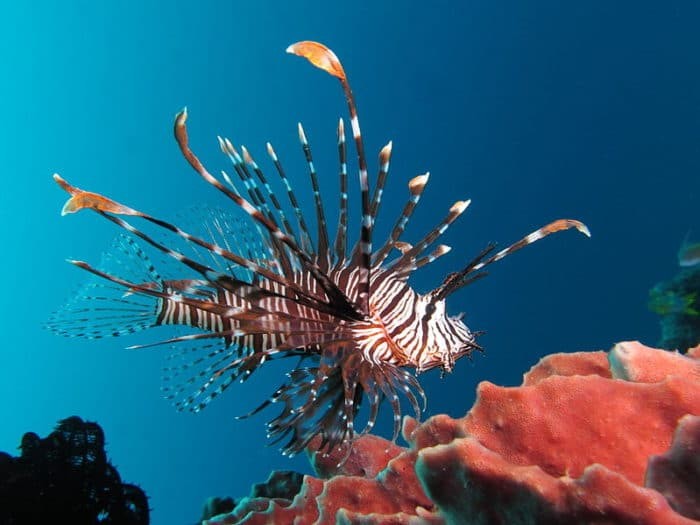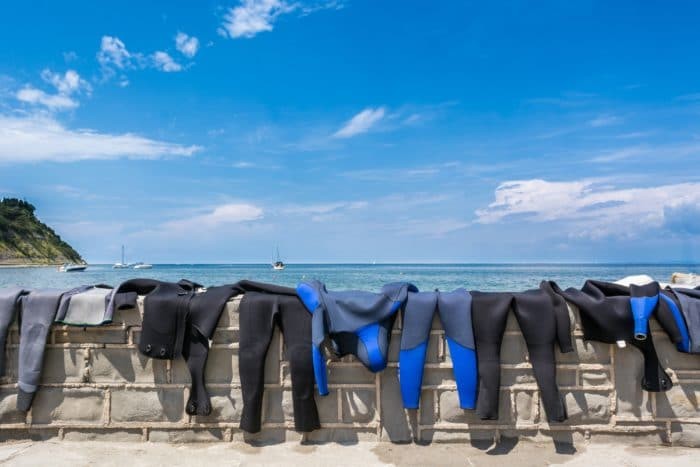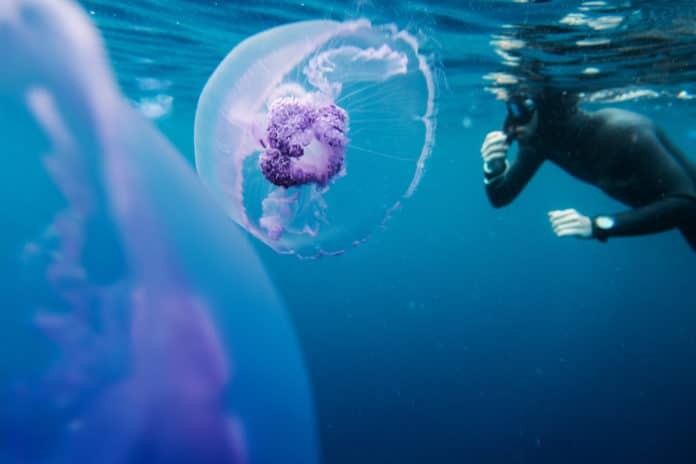Freediving wetsuits can be a costly addition in the hunt for your own equipment. It may even sound much more natural to freedive without one, especially when you dive in temperate waters and are on a budget. The price tag of wetsuits alone, whether they are for surfing, scuba, or freediving, may deter you from investing in one right away; continue reading to find out why wetsuits should be an essential addition to your freediving equipment bag.
Protection From Stings

A relaxed, seemingly perfect line dive can be easily ruined by a mere brush of a jellyfish tentacle across your face or on the thin skin of your ankle, immediately pulling you out of relaxation mode and into an uncomfortable state. There are tons of creatures that can sting freedivers in the ocean, and whether we are training on the line in open water or fun-diving near corals, it is important to protect our skin from these stings. Traditional freediving wetsuits cover you from ankles to wrists, with a hood attached, covering most of your bare skin. If there are quite a lot of jellyfish in the area you are diving in, consider using gloves and thin neoprene socks for added protection.
Protection From The Sun
While freediving, we are at the surface most of the time, waiting for our turn to dive and during the relaxation phase of our dives, which gives the sun ample opportunity to shine down on us. We may not feel the heat of the sun so much on our bodies while in the water, but even when it is cloudy, the sun’s harmful UVA and UVB rays are still beating down on our bodies. A wetsuit helps protect our otherwise exposed bodies from sunburns and the dangers of skin cancer.
Protection From Injuries
If you are fun-diving near corals, no matter how much attention you pay to avoid rocks or hard corals, you might still end up brushing against them accidentally. Apart from the general pain of scraping your skin, these cuts can leave your open skin exposed to other pathogens that may be floating in the water, which can lead to infections. Some corals also contain nematocysts, which is an organ in some marine animals that contain an injectable thread, resulting in a sting, and can cause a more significant injury. Wetsuits offer an extra layer of protection from rocks and corals in these cases.
Protection From The Cold
We learn early on in freediving courses how cold water can ruin the relaxation phase of a dive. Whether it is at the surface before a dive, or freefalling through a thermocline and getting hit with a shock of cold water, either situation can seriously impact a dive. Choosing the proper wetsuit thickness can make your training sessions last longer and be more enjoyable. Even in very temperate waters, we still lose body heat, just much slower than in cold waters. This is why a wetsuit is still preferable in tropical conditions, especially since they still protect our bodies from stings, injuries, and the sun’s rays.
Best Wetsuits For Freediving

Technically, you can just dive in a rash guard and leggings, which offer protection from the sun and stings. But for protection against the cold as well, owning and diving in a full, proper wetsuit is advised. Surfing wetsuits, apart from being generally more expensive and traditionally without a built-in hood, will not stand well against compression after some wear, since the suit is not intended to face constant compression. Scuba wetsuits are cheaper, but they are traditionally without a built-in hood as well and are much less flexible due to the type of neoprene used to withstand constant compression. Freediving wetsuits can be quite expensive, but with some research and patience, you can find these wetsuits in more economic materials (such as nylon-lined wetsuits), cheaper brands or wetsuits that are on sale, and gently used second-hand suits. A wetsuit investment is an investment in comfort, performance, and in yourself.
Check out our guide to buying your first freediving wetsuit.

